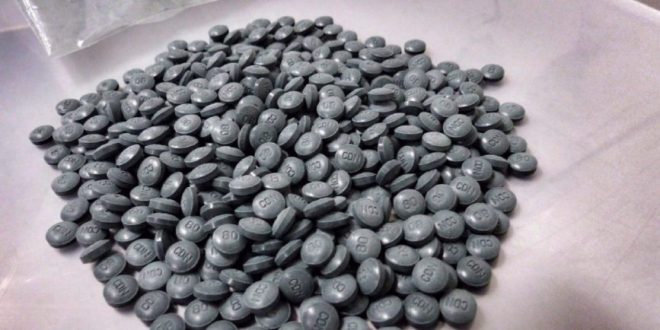Canada plans to restrict six chemicals used to make the drug fentanyl in a bid to stem what it called a national opioid crisis, the Canadian health minister said Wednesday.
The regulator says police have reported an increase in domestic production of illicit fentanyl. It’s a shift from pharmaceutical forms of the drug, like the patch.
But critics say the biggest problem is pure fentanyl, which is being smuggled into the country illegally.
Synthetic drug manufacturers in China are known to hide fentanyl in decoy packages and change the labeling to avoid detection at the border.
Some suppliers also try to skirt inspection rules by shipping drugs in an envelope under 30 grams, meaning border agents can’t inspect it without permission of the recipient.
The federal government acknowledges it’s a complicated issue.
“There is no single step that is going to win this battle. Government action must be multifaceted and dynamic in order to confront this crisis” it says.
First step
It’s a move Canadian senator and former Ottawa Police Chief Vernon White has been calling for, recently introducing his own bill to add fentanyl precursors to the list under Canada’s Controlled Drugs and Substances Act to restrict it’s importation.
White says the move will give law enforcement a new tool to fight the problem, he admits it’s a constantly moving target, and authorities need to stay ahead of the game.
“I think we need to target pill presses, I think we need to target w-18 which is starting to hit Alberta in particular and again is a synthetic opiod. And after that it will be W or X,Y,Z something else. This will be our next battle against illegal and illicit drugs. It will be trying to take on these synthetic opiods.”
He also says he recognizes the challenge that comes with so many of the chemicals slipping in from overseas, but says it’s a problem Canada can fix with some effort.
“China could do a lot to help us combat this by fighting it on their land instead of ours. I think it is about building up a law enforcement and security relationship with China to try and stop this.”
Agencies/Canadajournal
 Canada Journal – News of the World Articles and videos to bring you the biggest Canadian news stories from across the country every day
Canada Journal – News of the World Articles and videos to bring you the biggest Canadian news stories from across the country every day



